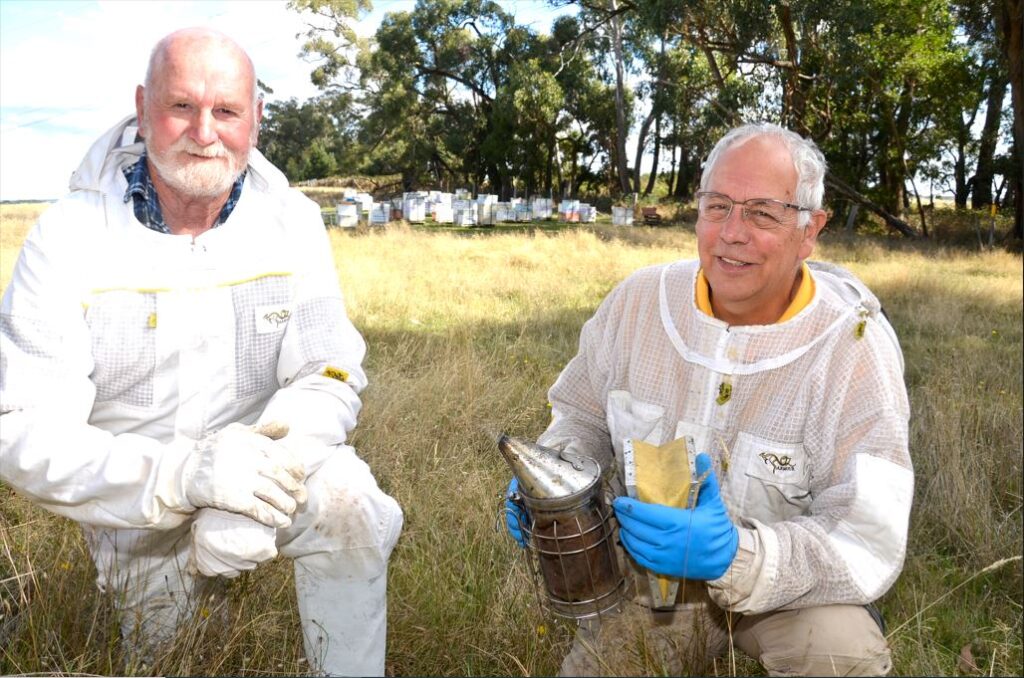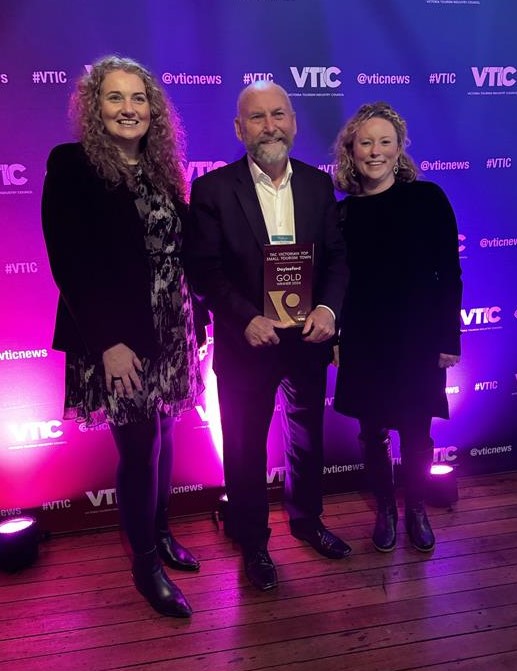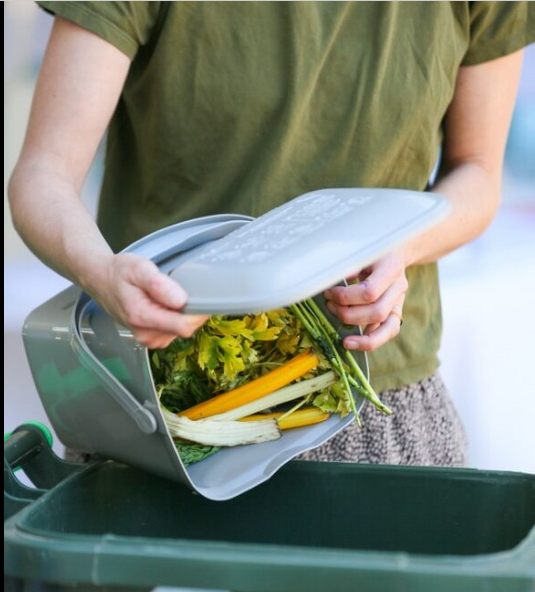May 13th, 2023Bee-sotted! How a backyard hobby became a business
The Local is running a producers’ series over the next few editions. Here Eve Lamb talks with Graeme Grigson from G’s Bees Honey – Down to Earth.

How does someone go from having just two bee hives to having 80? Don’t ask Clunes’ Graeme Grigson because he doesn’t know how it happened.
Suffice to say it did and now he’s a fulltime beekeeper. Bee-sotted you might say.
So is his buddy in all things apiary, Ian Macfarlane a former Clunes resident who now lives in Ballarat.
Ian keeps his four hives alongside Graeme’s, and, just between you and me, confides that it’s all part of a cunning plan to find out more about the pastime for which the two share a never-ending fascination.
“Graeme’s a great mentor. He likes to pass on all his knowledge,” Ian says.
Graeme says he started out as a hobbiest beekeeper with just a couple of boxes about two decades ago..
“I’ve been in beekeeping now for about 20 years,” he says.
“It started out as a hobby with two hives. Then I started helping others and my two hives became 10 and now it’s about 80 all up. I don’t know how that happened.
“It’s become full-time over the last two to three years.”
While his beekeeping enterprise that’s called G’s Bees Honey – Down to Earth, is a boutique business compared to the bigger commercial operations, it nevertheless sees him producing some 3000 kilograms of honey annually, “in a good year”.
“Normally in a good year we’d get about 3000 kilograms,” Graeme says.
As a result Graeme now supplies multiple local retail outlets from Melton and Bacchus Marsh to Creswick and Clunes, and he also regularly attends local farmers markets, selling his bees’ delicious produce.
But honey is far from the only product that flows from this pursuit of choice.
G’s Bees – Down to Earth has now also helped to create part-time employment for a neighbour of Graeme’s, in Clunes, who uses some of the honey to produce a range of tempting confectionery including chocolate-dipped honeycomb, lolly-pops and ginger honey.
“The ginger honey has really taken off,” Graeme says.
As well as this, G’s Bees – Down to Earth provides wax to other enterprising locals who convert the raw product into beautiful candles including natural tealights, and moisturizing lip balms, which also sell at local markets and select retail outlets.
“There’s nothing in a bee hive that can’t be used,” Graeme says.
“The wax, the honey, the pollen, the propolis…”
Then there’s the almond pollination. Graeme’s 80 or so hives – plus Ian’s four – get to travel quite a bit including up north to pollinate commercial almond crops.
“We migrate our bees throughout the year to different sites from Clunes to the Little Dessert,” the Clunes beekeeper says.
We go north to Piangle on the border in August for almond pollination then down to Kerang, and Sheparton and the canola which helps build the bees up after the almonds.”
Depending on where the hives are stopped, they collect from tree species including “long leaf box, yellow box, brown stringy bark, yellow gum, red gum, grey box, orange blossom, messmate.” Grame reels off some of the species from which his bees typically collect.
When possible, this list may also include the type of tea tree from which the precious medicinal manuka honey is produced.
When The Local caught up with Graeme and Ian, it was at a magnificent Buninyong site where about 60 of the hives had been sited but were soon to be collected and shifted to another site near Mount Beckworth just out of Clunes.
“My first honey extraction is normally around October and if it’s a good season we can extract every four to five weeks after that through to May,” Graeme said.
He explained what drew him to beekeeping in the first place.
“I just love honey really. And what better way to enjoy honey? I never use sugar any more as a sweetener. Just honey. It’s medicinal as well and, I believe, the darker the better.”
Both Ian and Graeme take the occasional sting as par for the course, but are also careful about donning the correct protective beekeeping kit before getting up close and personal with their buzzzy charges.
The challenges of bee keeping include “keeping on top of pests”- something Ian mentions – to the sometimes prohibitive costs associated with travel and transport which Graeme mentions.
“And if we get a bad season that’s a big challenge,” Graeme adds
The wetter weather of last year was challenging and impacted yields for many of the state’s beekeepers, for example
But Graeme and Ian agree it’s one of the most addictive enterprises you can get into.
“Really I got into it when I started learning how wonderful those little insects are,” Ian said.
Graeme names the lifestyle and the practice of getting out and about into some glorious parts of the state among the sweet aspects of becoming a beekeeper.
“It’s a fantastic interest to enjoy,” he says.
But he has some parting advice for those who think beekeeping may be for them.
“If you’re going to start out as a beekeeper, do your researcher and go out with a mentor. Also there’s beekeeping clubs like the Ballarat club and the Melbourne Beekeepers Club. Join a club.”
Words and Images: Eve Lamb
(Next edition, Red Hare Estate Vineyard)










